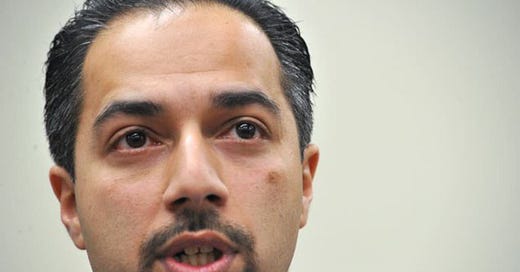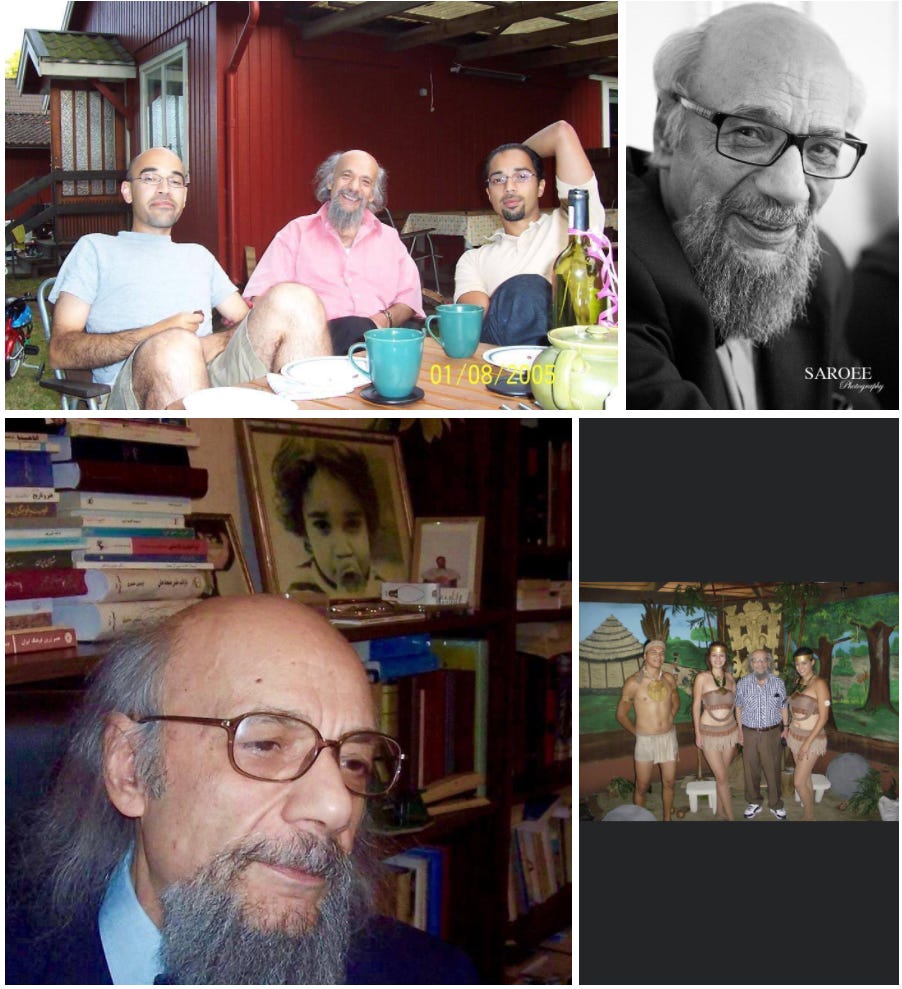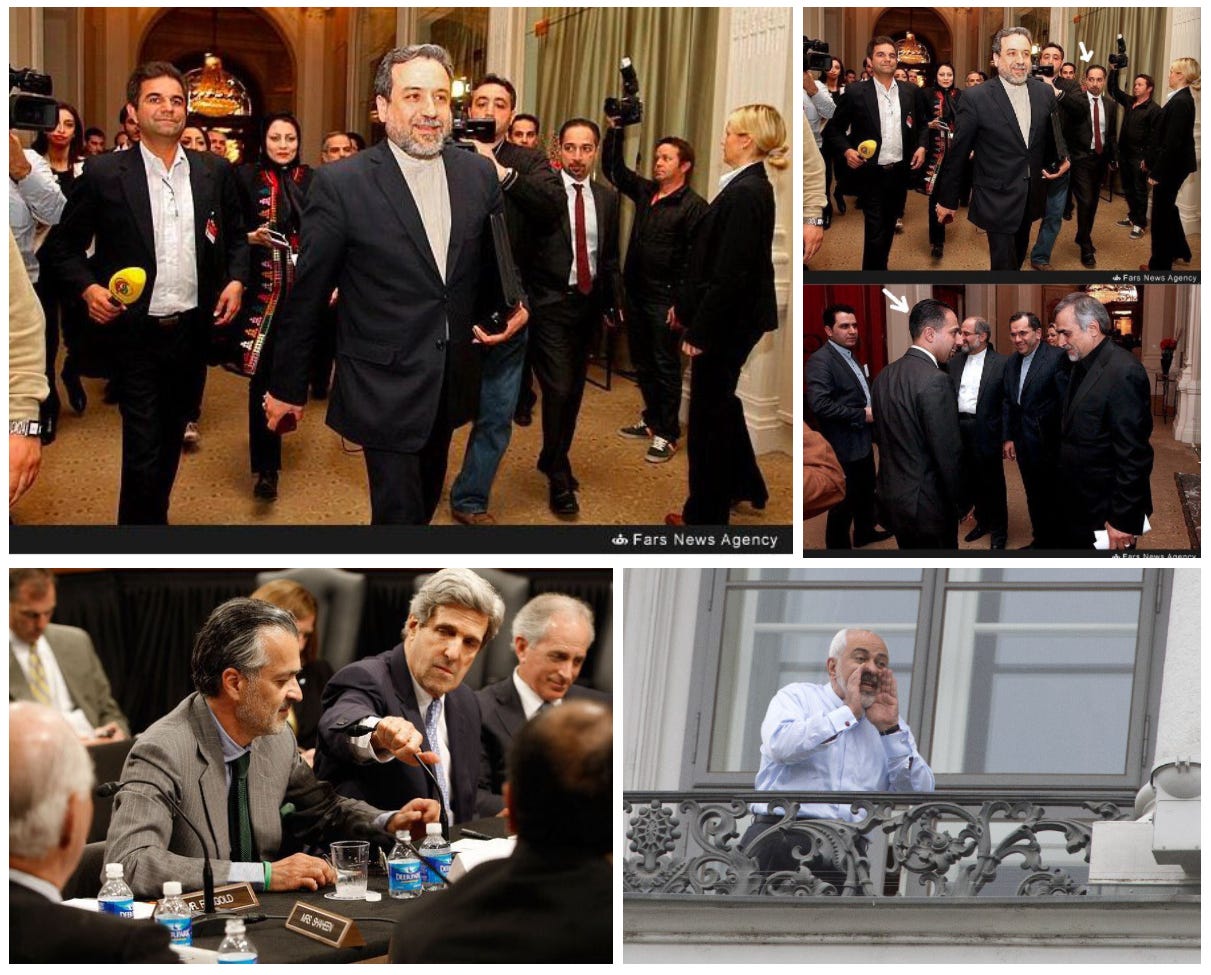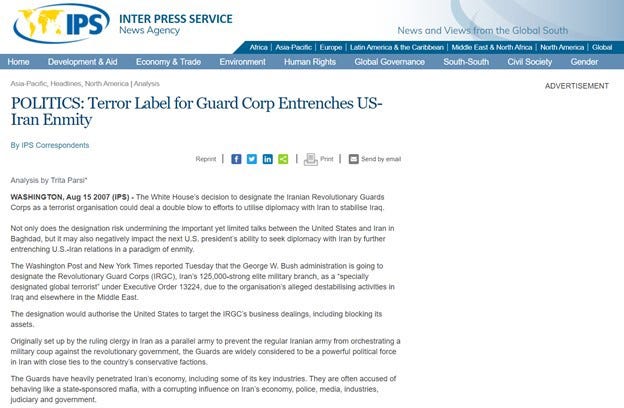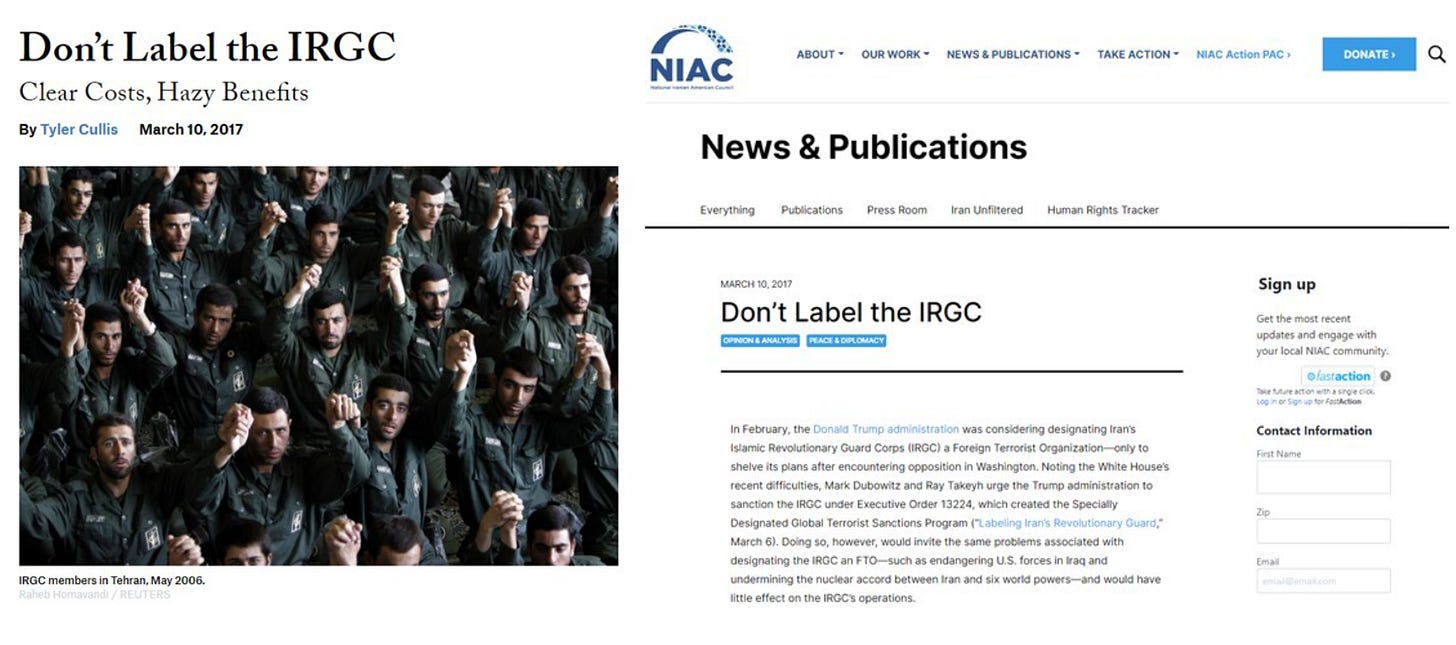Who is Trita Parsi?
Trita Parsi, founder of Iran’s DC-based lobby group National American Iranian Council (NIAC)
Meet Trita Parsi, the individual who launched a lobby group in the United States with the help of a few others, and specifically Mohammad Javad Zarif. Their work paved the path for the highly controversial 2015 nuclear deal between the Obama administration and the regime ruling Iran. This deal allowed the flow of billions of dollars into Iran thanks to massive sanctions relief blessed by Obama.
Trita Parsi was born on July 21, 1974, in the city of Ahvaz in southwest Iran. His family moved to Sweden prior to the 1979 revolution in Iran. Parsi maintained his Iranian citizenship and has a second Swedish passport. He currently lives in the U.S. with a Green Card.
Trita’s father is Dr. Touraj Parsi, a professor in the Jondi Shapour University of Ahvaz, with extensive studies in ancient Iranian history. Touraj Parsi is also an Iran expert in Stockholm University and was previously a member of Iran’s Tudeh Party, an Iranian communist party formed in 1941.
Trita Parsi first travelled to the U.S. in 1991 as an exchange student at Barnesville High School in Ohio. It is said he had problems with the family he was staying with and if it were not for Bob Ney, then a state senator, Parsi would have been forced to return to Sweden.
He remained in the U.S. and graduated high school in 1992, and then returned to Sweden afterwards. Between the years of 1992 to 1997 it is assumed that Parsi finished his studies for a bachelor’s degree, yet there is no record of where he went to school. There are many questions about his degree(s). It is known, however, that he worked in Sweden’s United Nations mission in New York for some time.
It is reported that in 1997 he travelled to Washington, DC, at the age of 25 to work as an intern for then Congressman Robert Ney. In August of that year, he founded the “Iranians for International Cooperation” (IIC) entity with assistance Houshang Amir Ahmadi, a career Iranian regime lobbyist in the U.S.
IIC’s mission was specifically to lobby for the regime in Iran in the U.S. and Europe. Aid from American businessmen and lobbyists, the likes of Bob Ney’s and others was extremely important in Iran’s lobby groups gaining strong footholds in the U.S. The financial assets necessary to launch these lobby groups were provided by the regime in Iran through their network of supporters across America.
From the Tablet Magazine: Parsi began his pro-Tehran activities in 1997 in Sweden as he founded a small lobby organization called “Iranians for International Cooperation” (IIC) that used its few Washington members to send petitions and letters to Congress members. In an IIC document released during a subsequent lawsuit, Parsi explained IIC’s activities and goals as follows: “IIC was founded in August 1997 by Trita Parsi, the present President. … Our agenda is topped by the removal of US economic and political sanctions against Iran. … IIC is capable of organizing the grassroots and pressure US lawmakers to pose a more Iran friendly position.”
Following his graduation Parsi worked for a year at Kreab, a communications firm in Sweden. In 2001 he was offered the position of Manager of Development at the American Iranian Council (AIC), a DC-based lobby firm established by Houshang Amir Ahmadi, an individual who is known for his close relations with Zarif. After receiving a license to work Parsi oved to the U.S. in February and began his work in the AIC.
During this period Parsi was planning the structure of a new non-governmental organization/lobby firm. He worked at AIC for less than a year and left to pursue his doctorate. His agenda was studying advanced international studies at Johns Hopkins University.
Shortly afterwards Parsi launched the National Iranian American Council (NIAC) with Alex Patico. In 2001 Parsi was also hired by Atieh Bahar, a Tehran-based Iranian advisory firm. Parsi sent his reports from Washington to this firm between 2002 and 2003 and received payments for his work.


From November 2001 to June 2005 Parsi was the foreign policy advisor of then Congressman Robert Ney from Ohio. Parsi became known across the U.S. under various titles and different positions, with support from Robert Ney. He began attracting media attention where he was pushing Iran’s talking points. NIAC also gained a stronger foothold with help from Ney.
Parsi married Ameneh Samlami in 2003. He was able to receive a Green Card in 2006 and published his thesis in 2007 titled: “Treacherous alliance: The secret dealings of Israel, Iran, and the United States.” The objectives pursued by Parsi and NIAC were to bring the U.S. and Iran to the negotiating table.

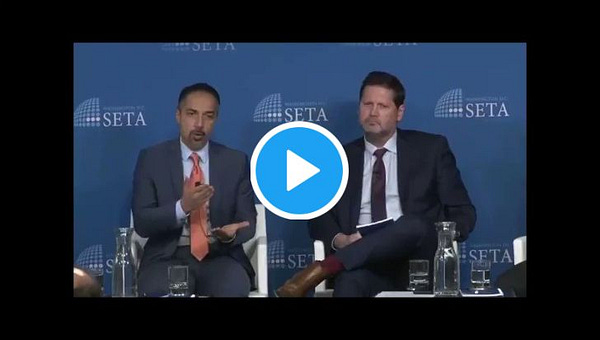
“The National Iranian American Council (NIAC) frequently echoes Tehran’s rhetoric in redirecting blame at the U.S. for Iranian aggression and malfeasance,” writes Michael Johns, Jr. in an excellent take on NIAC.
Parsi’s role as the president of NIAC, coupled with his influence in the media and Congress, allowed him and his colleagues to play a key role in Iran’s nuclear talks with the Obama administration. Hooman Majd, Sahar Nowrouzzadeh, Houshang Amir Ahmadi and Mehdi Zarif, amongst others, played key roles in the nuclear deal brokered between Washington and Tehran.
The stage set and prepared by NIAC and Robert Ney allowed Zarif and his team to arrive at the negotiating table with the U.S. with a high level of self-confidence. Millions of dollars belonging to the Iranian people were transferred to Tehran’s lobby groups, especially NIAC, to pursue the regime’s objectives in the U.S. and Europe.


Thanks to Obama’s 2015 nuclear deal with Iran, reached with the help of NIAC, at least $152 billion in credit and cash were released into the regime’s coffers, allowing the mullahs to continue their crimes both inside Iran and across the globe.
Parsi and NIAC have long opposed any sanctions and designations by the U.S. against Iran’s Revolutionary Guards. In 2007, Parsi wrote “Terror Label for Guard Corp Entrenches US-Iran Enmity,” originally on NIAC’s website then taken down.
NIAC continued pushing this policy in 2017 as reports began circulating of the Trump administration possibly designating the IRGC.
“Don’t Label the IRGC,” originally on Foreign Affairs / Syndicated on the same day on NIAC’s website
The Obama admin was in bed with Iran’s regime & its lobby group NIAC, based on emails by the U.S. State Department.
“I have chatted with NIAC folks over the years”
“we do have a relationship with NIAC”
NIAC sought the Obama administration’s advice on paying President Clinton for a speech.
Last December, [NIAC] outrageously alleged that the attacks on the U.S. embassy in Baghdad and U.S. forces elsewhere in Iraq were not the fault of the regime-backed militias that carried out the attacks, but rather of President Trump.
How Trita Parsi & NIAC Used the White House to Advance Iran’s Agenda
“… organizing the grassroots and pressure US lawmakers to pose a more Iran friendly position.”
Former Iranian Official, Pro-Tehran Lobbyist Hosted at Obama White House Dozens of Times
“Trita Parsi, a pro-Iran advocate long accused of hiding his ties to the Iranian government, met with Obama administration officials some 33 times…”
On May 17, 2018, Parsi announced his resignation from NIAC’s presidency affective in August 2018. This resulted from the numerous complaints and protests against Trita Parsi himself and NIAC. Parsi resigned to decrease the pressure on NIAC and sway attention away from Tehran’s lobby group.
In the summer of 2019 Parsi and others launched the Quincy Institute with money from controversial billionaires George Soros and Charles Koch. Their objective: preaching a pro-appeasement approach to U.S. foreign policy. This again would allow Iran to take advantage of such a weak modus operandi.
The Quincy Institute is a Washington, D.C., think tank funded by George Soros that has promoted anti-Semitic voices and parroted pro-Iran talking points.
Iran took advantage of Obama appeasement and had its apologists/lobbyists push its talking points freely. They should not be allowed to continue.
For starters, the U.S. should pursue an investigation into Tehran’s lobby arm NIAC.
The Pompeo State Department had called on U.S. think tanks and other policy groups to publicly disclose how they are funded — or risk forfeiting access to top department brass.
NIAC should be demanded to disclose their funding.

